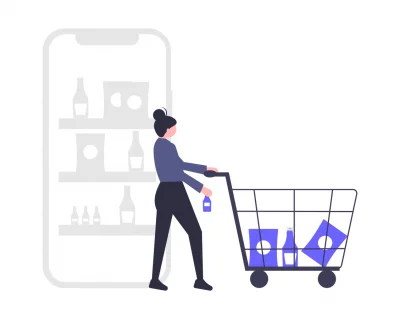
Commerce Questions and Answers
Test and improve your knowledge of the fundamentals of buying and selling with these Commerce past questions and answers.

Test and improve your knowledge of the fundamentals of buying and selling with these Commerce past questions and answers.
consumer sovereignty means that the consumer is?
a citizen
always independent
always wrong
always right
Correct answer is D
Consumer sovereignty is an economic concept which refers to the controlling power of consumers, over the custodians of scarce resources, in what final products should be produced. Sometimes the term consumer sovereignty is also used as a hypothesis that the production of goods and services is determined by the consumers' demand. The power of consumers to determine what goods and services are produced. The theory suggests that consumers, not producers, are the best judge of what products benefit them the most.
The direct authority of a superior over his subordinate is known as?
staff authority
line authority
line and staff authority
lateral authority
Correct answer is B
The chain of command within an organization that confers the power to order subordinates to perform a task within their job description. The line of authority within a business establishes who is in charge of giving who orders, and it contributes to the efficient attainment of the company's objectives when properly used.
issue of shares to the directors of a company.
issue of shares by a company only to the founders of the company
right of shareholders to vote on any issue
issue of shares to shareholders on favorable terms
Correct answer is B
A rights issue or rights offer is a dividend of subscription rights to buy additional securities in a company made to the company's existing security holders. When the rights are for equity securities, such as shares, in a public company, it is a non-dilutive pro rata way to raise capital. Rights issues are typically sold via a prospectus or prospectus supplement. A rights issue is when a company issues its existing shareholders a right to buy additional shares in the company. The company will offer the shareholder a specific number of shares at a specific price.
The main objective of corporate mergers is to?
minimize the effect of taxation
increase financial advantage
facilitate profit maximization
enhance economies of scale
Correct answer is D
The main benefit of a merger is to gain more market share. This increases a firms monopoly power and enables higher prices (this is why mergers are often regulated by government.)
When the goods are distributed to the wholesalers
When the goods reaches the retailer
When the goods reaches the final consumers
When the goods are fully packaged
Correct answer is C
production ends when it reaches the final consumer
production doesn’t end until the goods reaches its final consumers